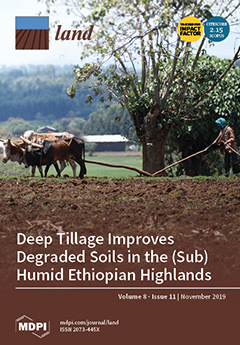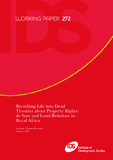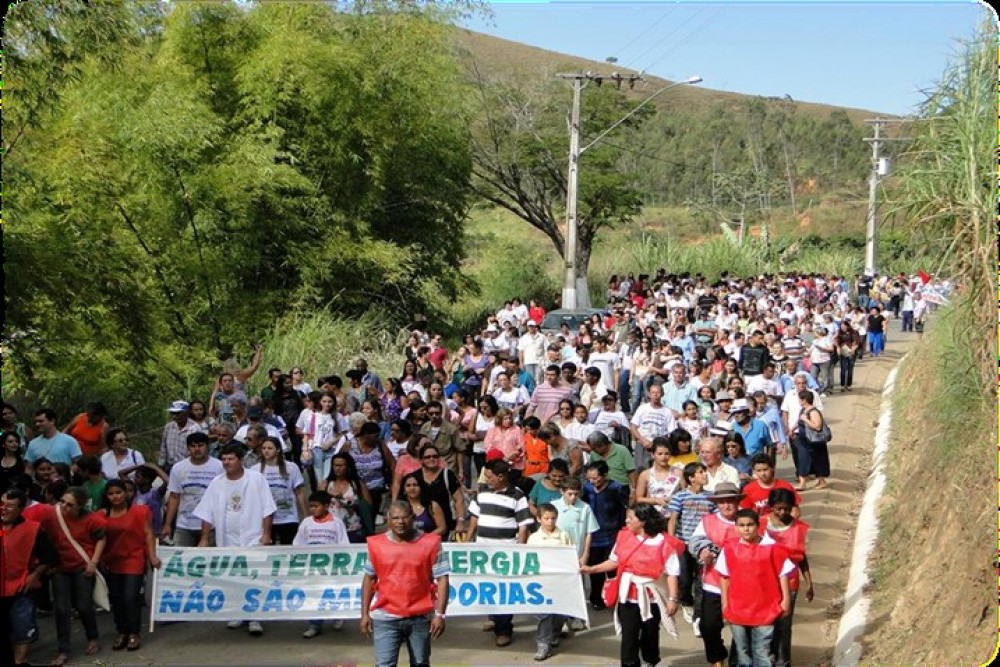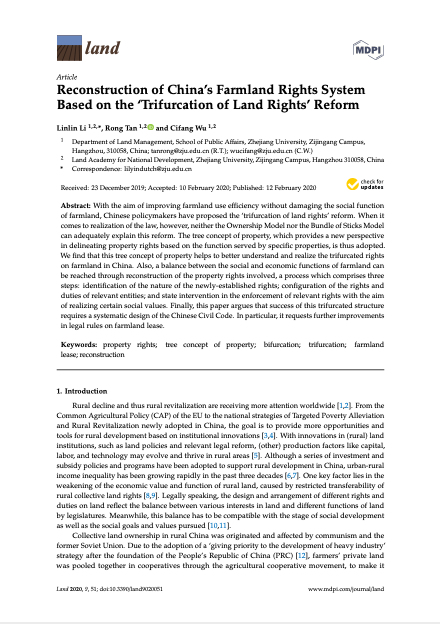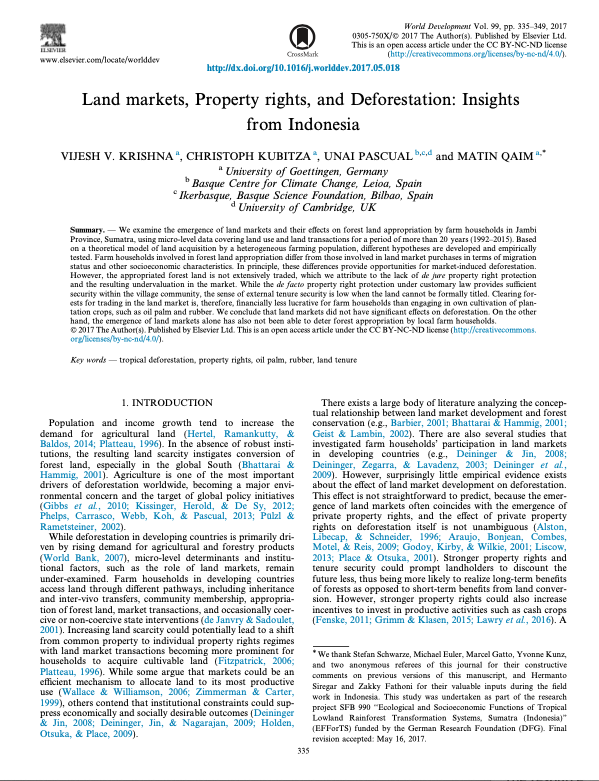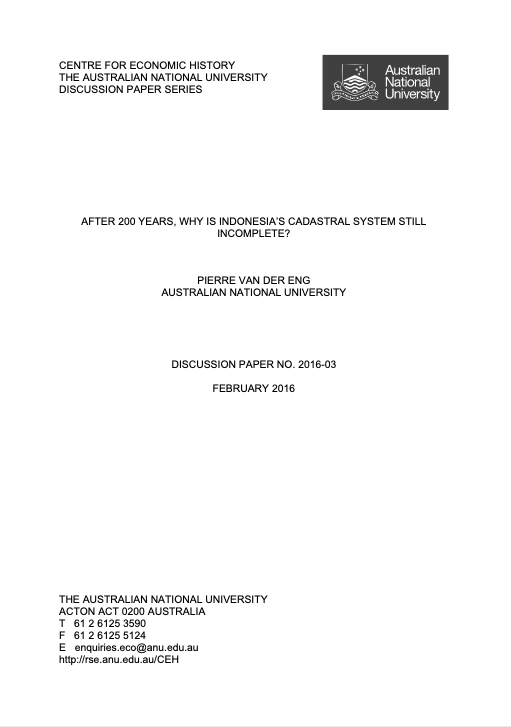Pastoralism and Land Tenure Transformation in Sub-Saharan Africa: Conflicting Policies and Priorities in Ngamiland, Botswana
In dryland Africa, access to land and water resources are central to pastoral livelihood activities. Policy intervention in these regions represents the outcome of concerted post-independence processes in which countries have committed to land tenure transformation as a policy objective. This was meant to create private, liberal property rights to replace communal customary tenure systems which were considered to be a constraint to development. Despite these efforts, decades of scientific research indicate that countries are still struggling to meet environmental sustainability objectives.


